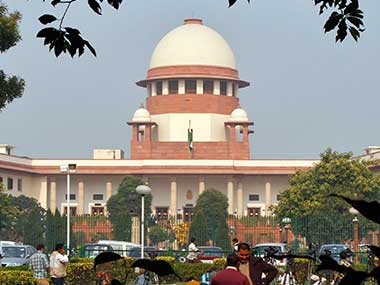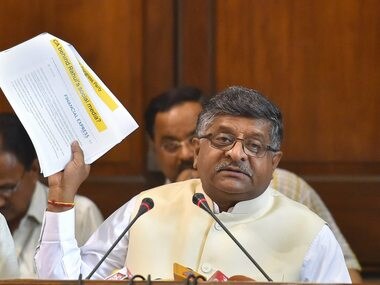Earlier this week, the Supreme Court passed a judgment in a case relating to the Scheduled Castes and Scheduled Tribes (Prevention of Atrocities) Act, which related to a complaint filed in 2006 by a scheduled caste storekeeper against two seniors for making adverse entries against him in his annual confidential report. The Maharashtra government’s director of technical education refused to grant sanction for prosecution when an application was made in 2011.
The questions considered by the Supreme Court concerned mostly the grant of bail and quashing of the proceedings. It ultimately quashed the proceedings, while also concluding that there was no bar on the grant of anticipatory bail in such cases and that in view of the ‘acknowledged’ abuse of the law of arrest under the provisions of the law, the arrest of a public servant could only be effected after obtaining approval from the appointing authority and in the case of others from senior police officers. It also said that in many cases, preliminary investigations were necessary. There is no need to go into the merits of the order, but some remarks made by the court must be alluded to.
First, it opined that the atrocities act was often misused to settle personal scores, so, it was incumbent on both judicial and law-enforcement authorities to exercise caution while dealing with complaints made under the act. It cited statistics from the National Crime Records Bureau (NCRB) to show that in 2015, police filed closure reports in 15-16 percent of cases, while more than 75 percent of cases had resulted in acquittals or withdrawals.
Second, and, more importantly, it opined that the working of the atrocities act should not perpetuate casteism, which would undermine the integration of society and the Constitution’s secular values, quoting from BR Ambedkar’s speech in the Constituent Assembly in which he said castes were anti-national and that liberty, equality and fraternity were interwoven elements of a trinity and would have to be enforced.
The Congress reacted first asking for a review of the order, which it said diluted the atrocities act and removed the rings of security it provided to the most vulnerable. It asked the government to take an unambiguous stand against the order, by either filing a review petition or amending the 1989 law. It accused the BJP government in Maharashtra of handling the case negligently.
Subsequently, others have sought to intervene. Dalit MPs across parties have demanded a review, while a Dalit group, the Dalit Shoshan Mukti Manch, has urged the Union government to challenge the judgment.
So much for context. The point the Congress has also made, that the BJP and Rashtriya Swayamsevak Sangh are averse to reservations, is not without substance. But there can be no doubt about the fact that the Dalits have been under fire in more than one, especially since a BJP majority government has come to power at the Centre and several states, Uttar Pradesh being the most important. The Congress, in fact, cited 2016-17 NCRB data to show that crimes against scheduled castes had increased by 5.5 percent and those against scheduled tribes by 4.7 percent under the current dispensation in New Delhi.
It is not just that physical attacks on Dalits have increased — in Uttar Pradesh, Gujarat and Maharashtra, for instance — but economically too they are under the cosh. The stringent penal provisions against cow slaughter, the broadening of legislation against it and the tacit encouragement given to ‘cow vigilantes’ by the BJP and its governments, have had, as we know, a hugely adverse on skinning and tanning of dead cows and the leather industry generally, which provide livelihoods to Dalits on a disproportionate ratio.
In the present climate of fear and reprisal, the Supreme Court order is politically damaging. In any case, one statistics the court cited – that over 75 percent of cases filed under the atrocities act result in either acquittal or withdrawal – does not necessarily prove that cases are filed to settle scores. Many would read it (as with cases concerning crimes against women) as a demonstration of the facts that Dalits lack the resources to utilise judicial proceedings in an equal manner, that they can be intimidated into withdrawing cases, and that systemic prejudices against them are alive and well, even in organs of the state.
The Central government hasn't really responded to the judgment, though Union law minister Ravi Shankar Prasad has said he will react after examining it. The judgment is in the public sphere and over 48 hours have passed, we have heard not a peep.
And finally, it bears noting that neither the atrocities act nor cases of its ‘misuse’ are responsible for caste remaining a barbaric reality in Indian society. A vast complex of factors connected to education and the fundamental dynamics of the economy and polity have blocked social change. Strengthening the act, not impugning it, is one step forward.
Published Date: Mar 23, 2018 19:24 PM | Updated Date: Mar 23, 2018 19:24 PM




